New “Environment, Sustainability, and Management” Degree at CCRI now enrolling for Spring 2023
Innovative collaboration between RI Nursery & Landscape Association, RI Food Policy Council, and Community College of RI provides a clear path toward careers in RI’s growing land and sea industries
PROVIDENCE, RI, January 6, 2023 — Rhode Island needs a workforce that can meet the current and future needs of the state’s flourishing land and sea industries, sectors that are quickly rising to the top of the state’s strongest economic drivers. A new program — created through collaboration between industry leaders and college leaders– is building a pathway to meaningful career opportunities on working lands and waters.
The new associate degree in Environment, Sustainability, and Management at the Community College of Rhode Island (CCRI) is a first-of-its-kind, interdisciplinary program that is preparing students for careers in the landscape, farm, and food sectors – and arming them with the perspective they need to meet social, economic, and ecological challenges facing the world and businesses today. Spring classes begin January 23, and enrollment is now open.
Students enrolled in the program develop skills in both business and science through courses like Biology of Trees and Shrubs and Soil Science as well as Entrepreneurship: The Design Process and Leadership Development. Work-based learning opportunities also count for credit. Graduates with this credential are positioned to chart successful career paths, with immediate job opportunities after graduation. Additionally, graduates can transfer easily into the University of Rhode Island’s bachelor degree programs in Sustainable Agriculture and Food Systems, Plant Sciences, and other programs in the College of the Environment and Life Sciences (CELS).
“The clear transferability to URI is an important component of providing young professionals with clear opportunities to advance in their education while also elevating them to new positions of responsibility in local and regional companies,” explains Shannon Brawley, Executive Director of the RI Nursery and Landscape Association (RINLA). “It is vital that we cultivate, train, and educate the next generation of natural resource professionals who will be charged with stewarding, protecting and responding to a changing environment and feeding our community.” “The program brings together stakeholders to solve a pressing issue in our food system: workforce development aligned to employer needs and ecological imperatives,” said Josh Daly, Associate Director of the RI Food Policy Council, “This kind of partnership is at the heart of what our organization is about, and we’re proud to be a part of it.”
Land and sea industries contribute many billions of dollars annually to the state’s economy. These industries include agriculture and food businesses, landscape design and management companies, and commercial fisheries and aquaculture. Collectively, these industries also contribute significantly to the creation, cultivation and maintenance of open spaces that sustain the state’s vital tourism industry. Despite this industry’s economic strength, employers struggle to fill a broad range of jobs, including entry-level and managerial, as well as outdoor physical work and indoor planning, design and management roles. In fact, a survey conducted by RINLA, which represents over 500+ member businesses, found that the #1 issue impeding business growth in green industries was workforce challenges.
All Rhode Islanders who want the knowledge, skills, perspective and experiences to impact the social, economic, and ecological challenges of today’s world are encouraged to register. Additional information can be found .
ABOUT RINLA
The Rhode Island Nursery & Landscape Association serves the green industry and promotes environmental stewardship. RINLA advances the welfare of its members through education, research, legislative representation, certification, support in the marketing of green industry goods and services, and collaboration with allied interests/associations. Additional information can be found at www.rinla.org and www.growingfuturesri.org.
ABOUT RIFPC
The Rhode Island Food Policy Council is working to build a more equitable, accessible, economically vibrant, and environmentally sustainable food system in Rhode Island. We coordinate statewide collaboration of diverse, committed and engaged stakeholders from all sectors of the food system. We create partnerships, develop policies, and advocate for improvements to the local food system to increase and expand its capacity, viability, and sustainability. Additional information can be found at www.rifoodcouncil.org.
ABOUT CCRI
The Community College of Rhode Island, New England’s largest community college, enrolls nearly 18,000 students in credit-bearing degree and certificate programs and an additional 8,500 individuals in workforce development programs and adult education courses annually. With a passionate commitment to student success and closing equity gaps, CCRI provides Rhode Islanders with an outstanding college education that leads to strong learning outcomes, successful degree attainment and robust labor market outcomes. With four campuses across Rhode Island, CCRI offers online, hybrid and in-person options for students, meeting them where they are and helping them achieve their educational and career goals. CCRI was named the 2019 Two-Year College of the Year by Education Dive magazine. For more information, visit ccri.edu.
The development of this Associate degree was supported by a grant from the Agriculture Workforce Development Program of the U.S. Department of Agriculture’s National Institute of Food and Agriculture.
##
For inquiries:
Shayna Cohen, KK&P
shayna@kkandp.com
917-859-5283

